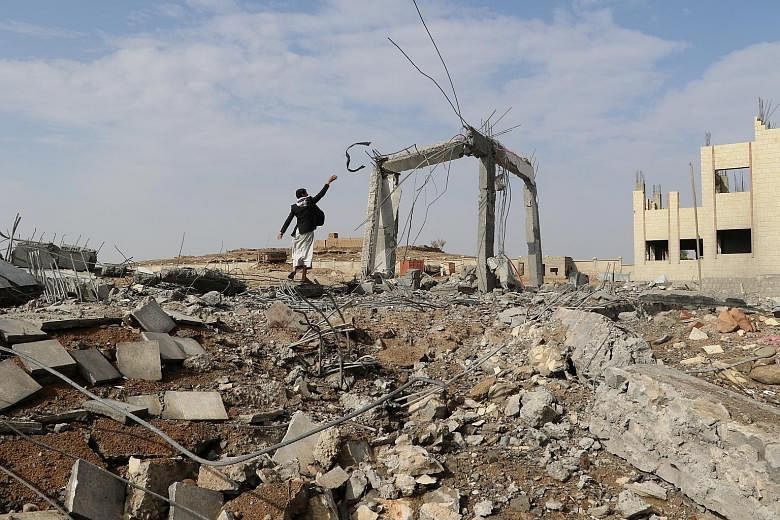Following his April 11 tweet that missiles "will be coming" in Syria, President Donald Trump on Friday night announced US air strikes on multiple sites, including Damascus.
The targeted sites were ones believed to be capable of storing chemical weapons and/or chemical precursors. The strikes were carried out in retaliation for last week's alleged chemical weapons attack by President Bashar al-Assad's regime.
Already a subscriber? Log in
Read the full story and more at $9.90/month
Get exclusive reports and insights with more than 500 subscriber-only articles every month
ST One Digital
$9.90/month
No contract
ST app access on 1 mobile device
Unlock these benefits
All subscriber-only content on ST app and straitstimes.com
Easy access any time via ST app on 1 mobile device
E-paper with 2-week archive so you won't miss out on content that matters to you

